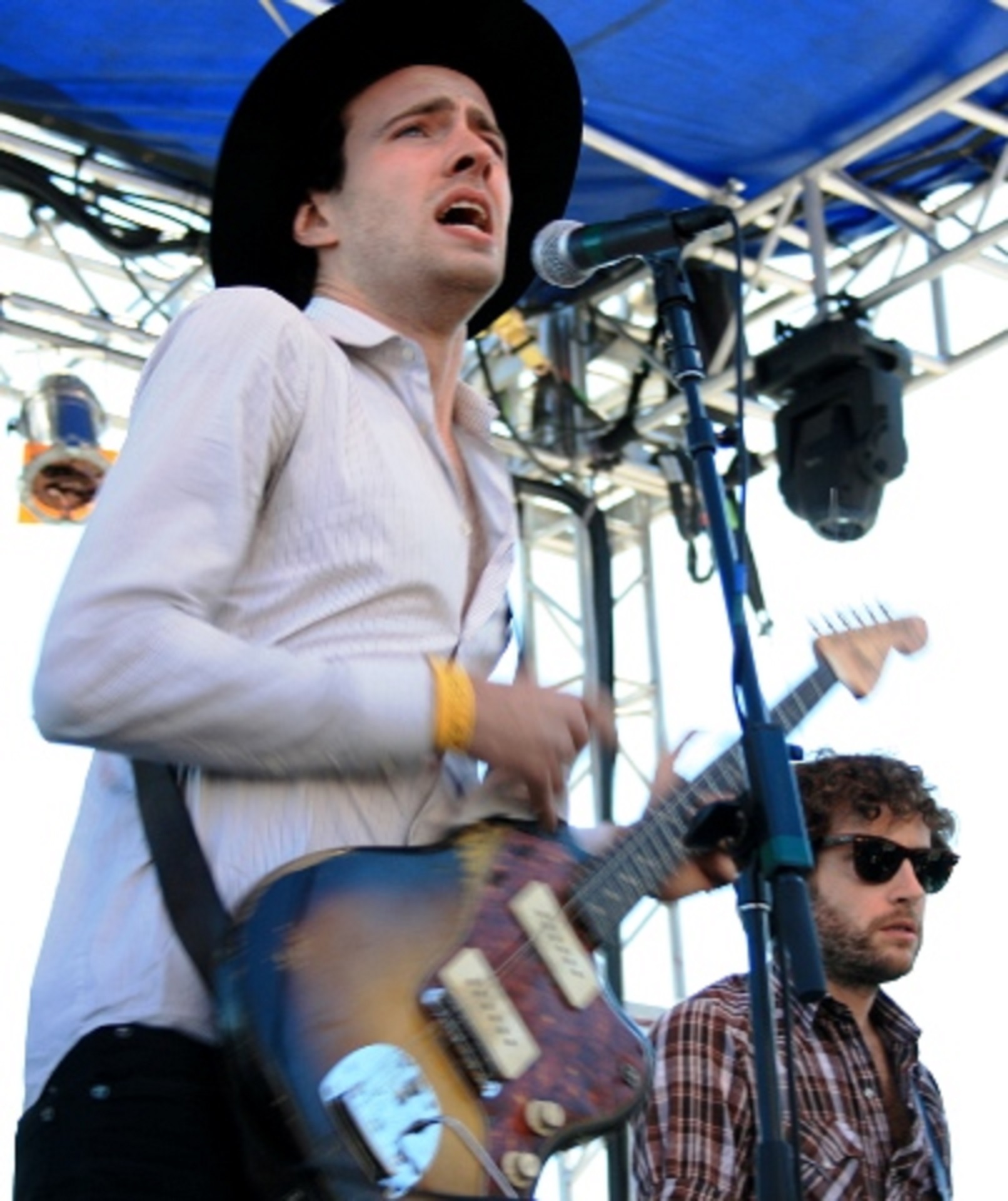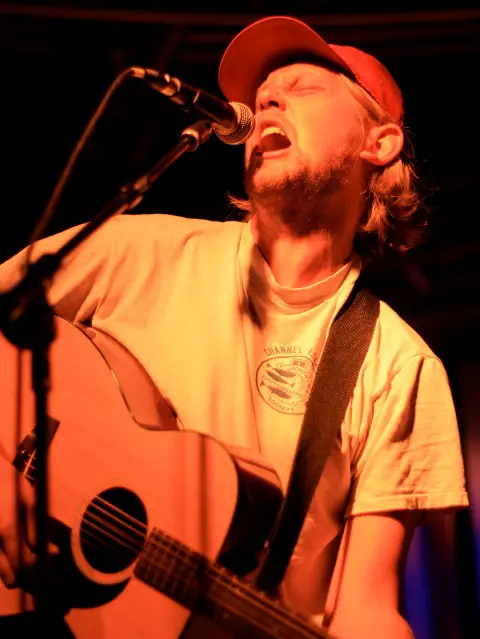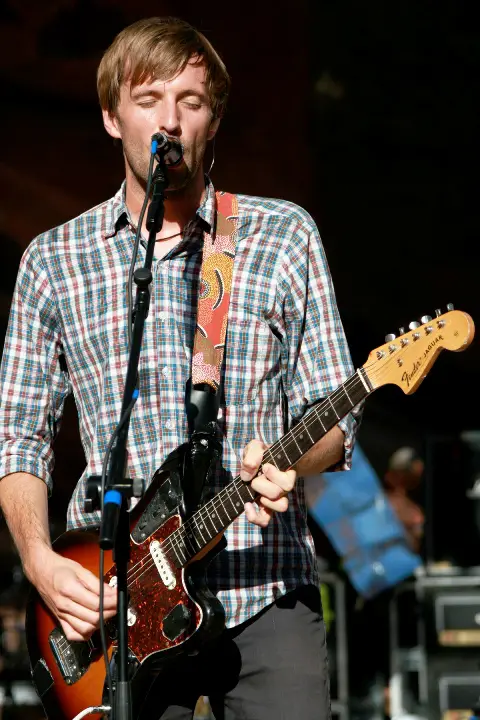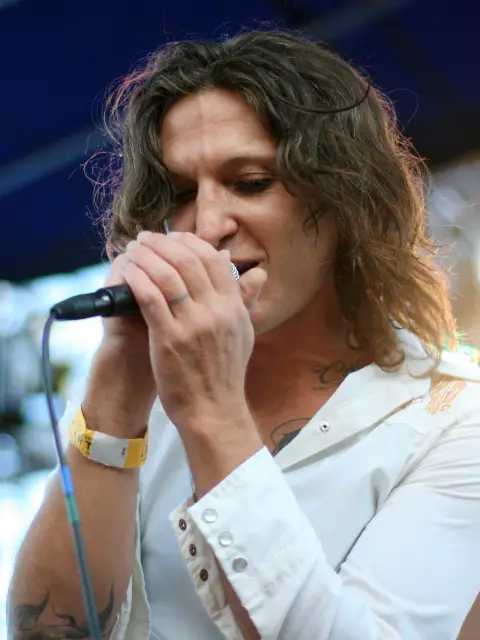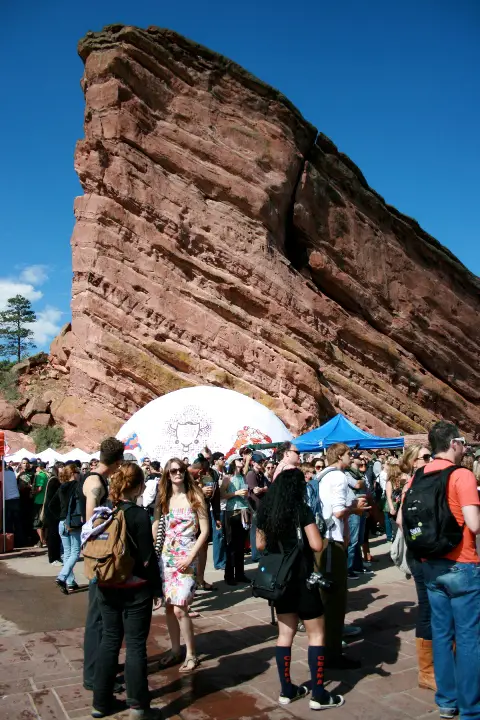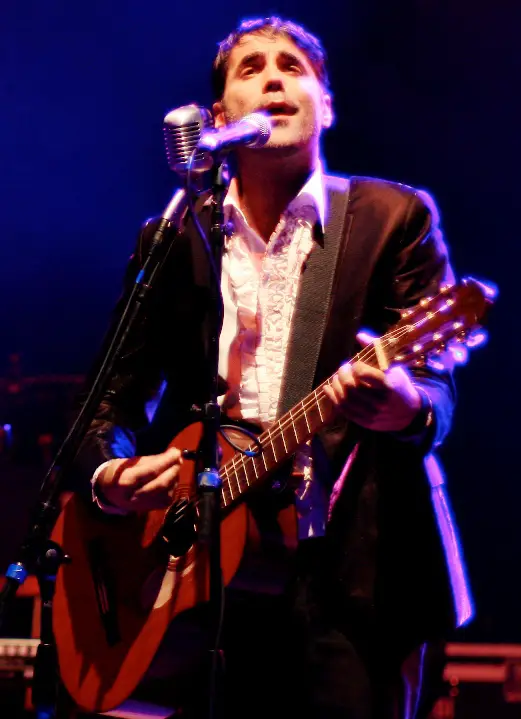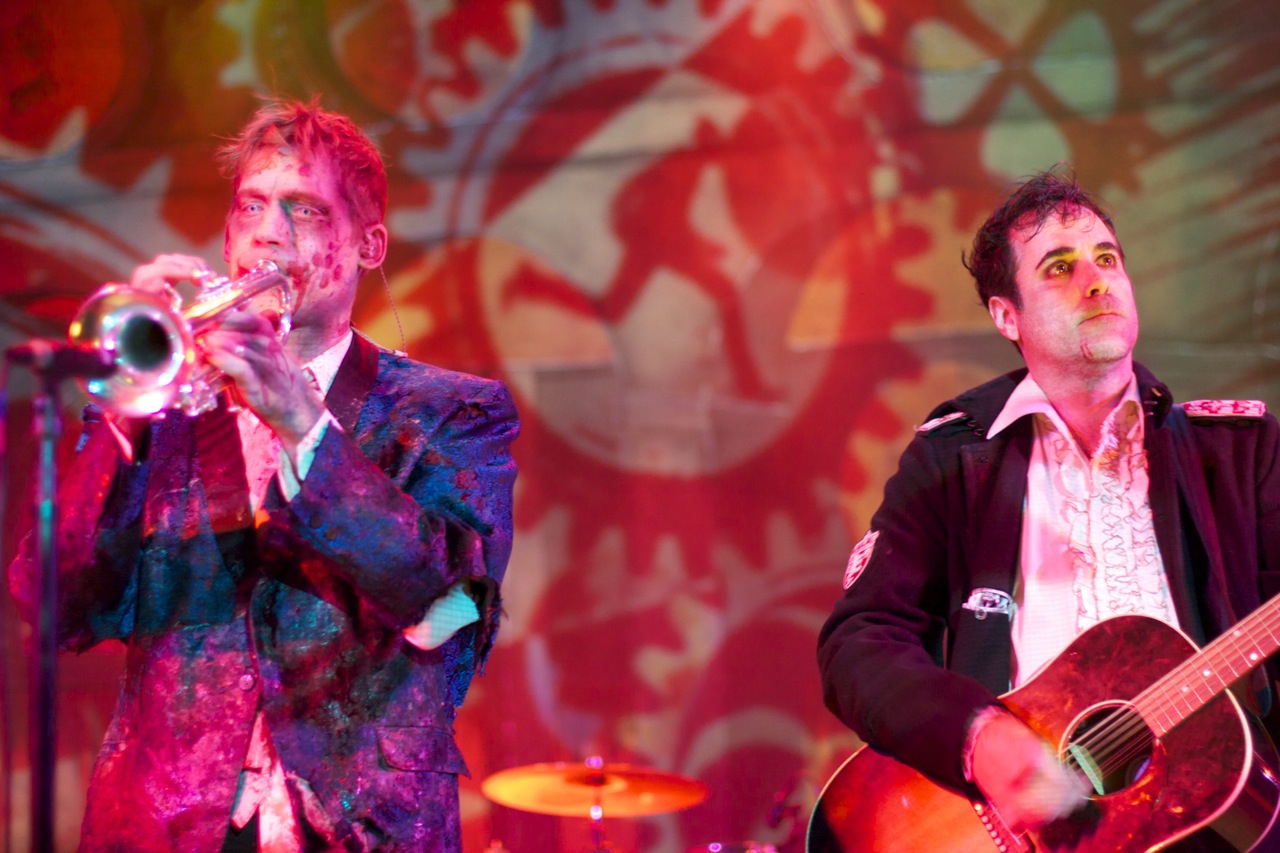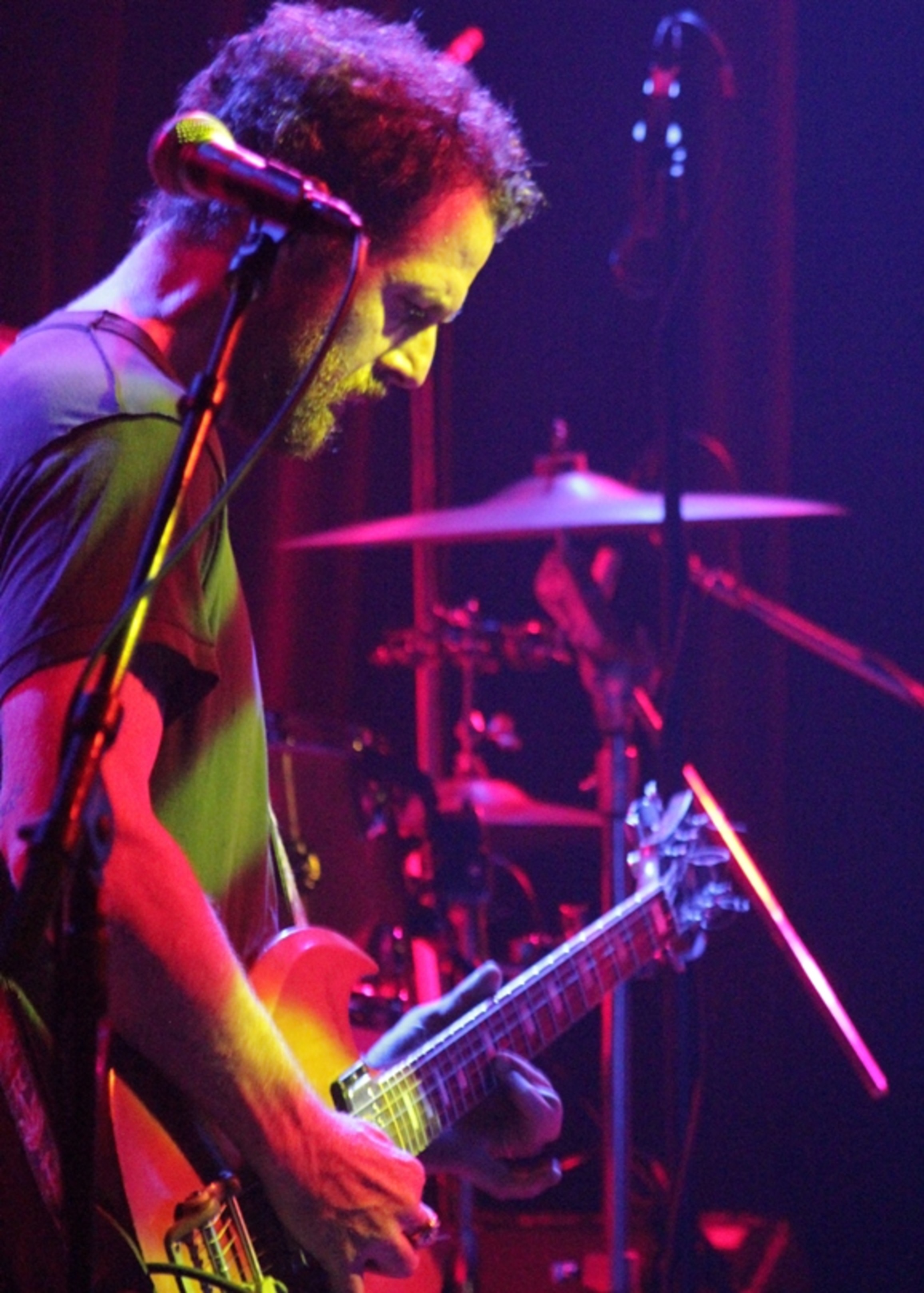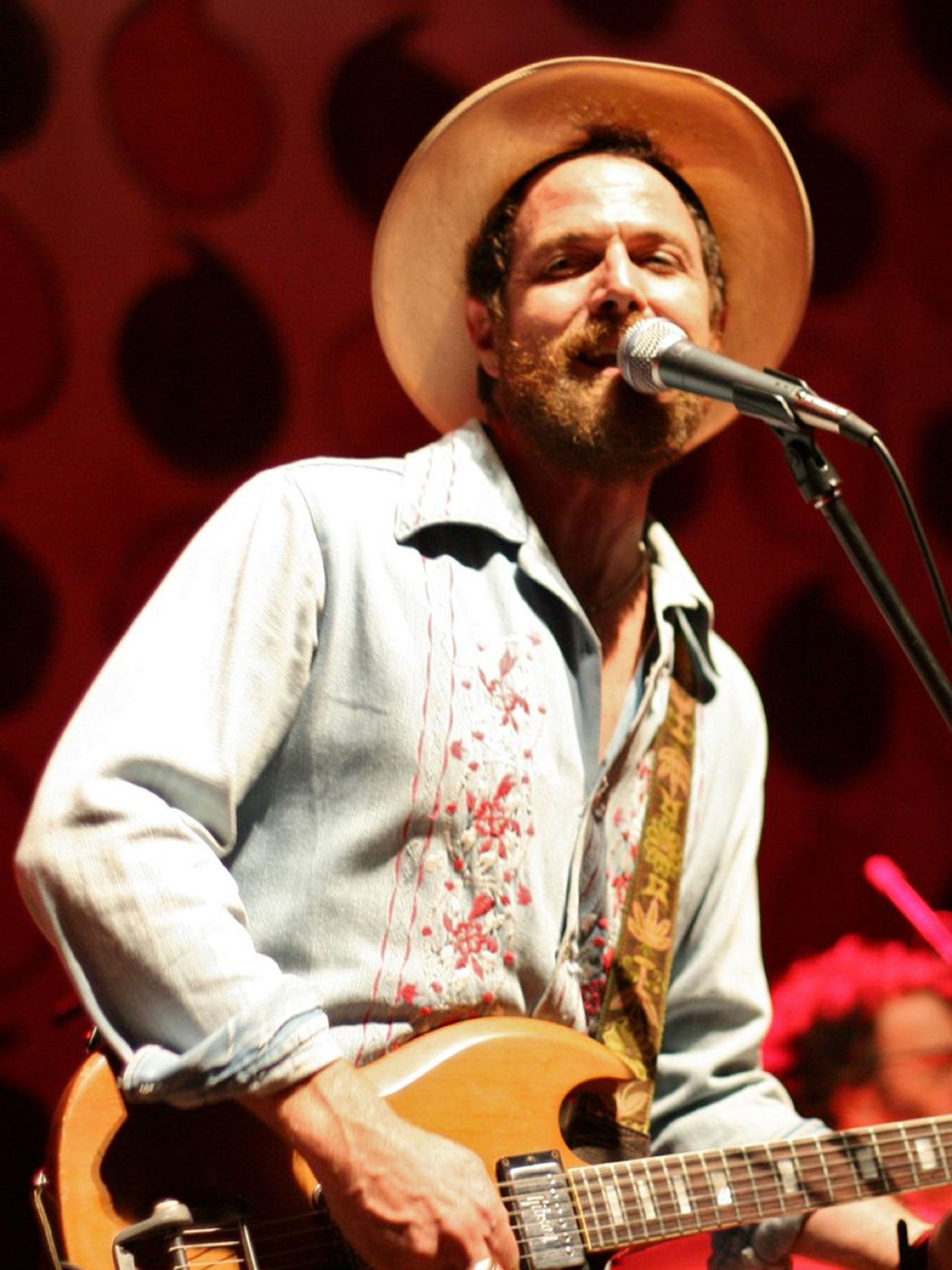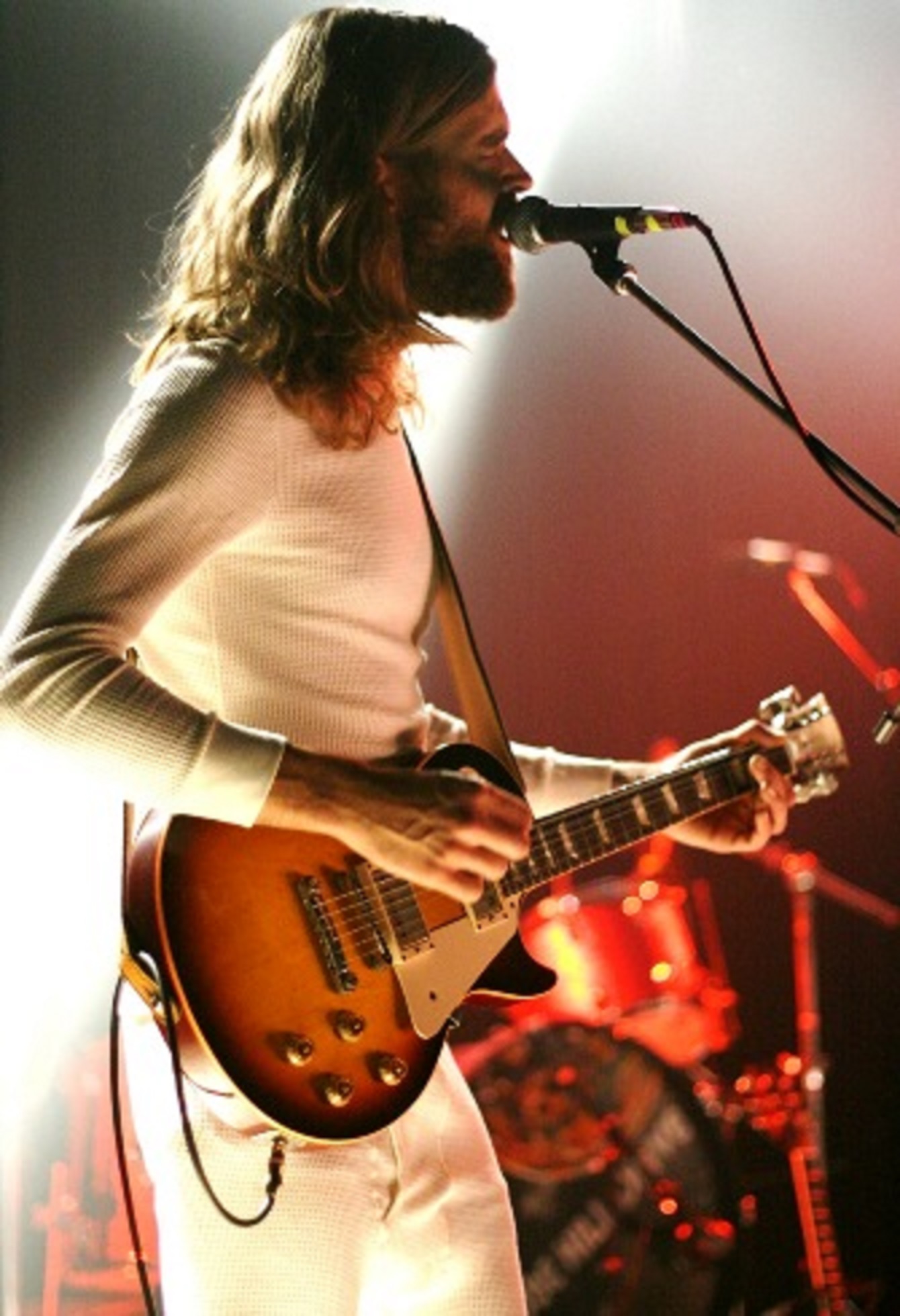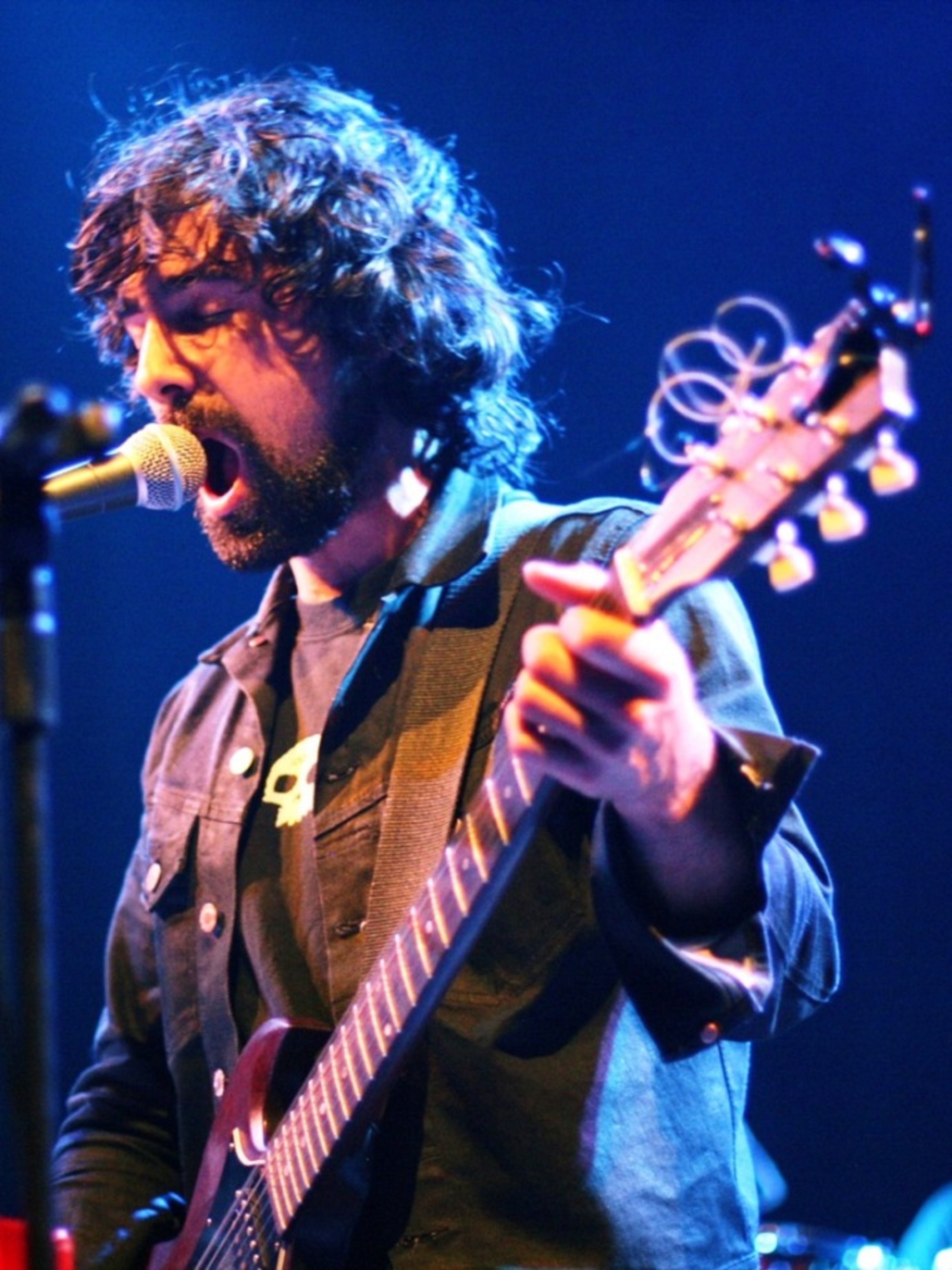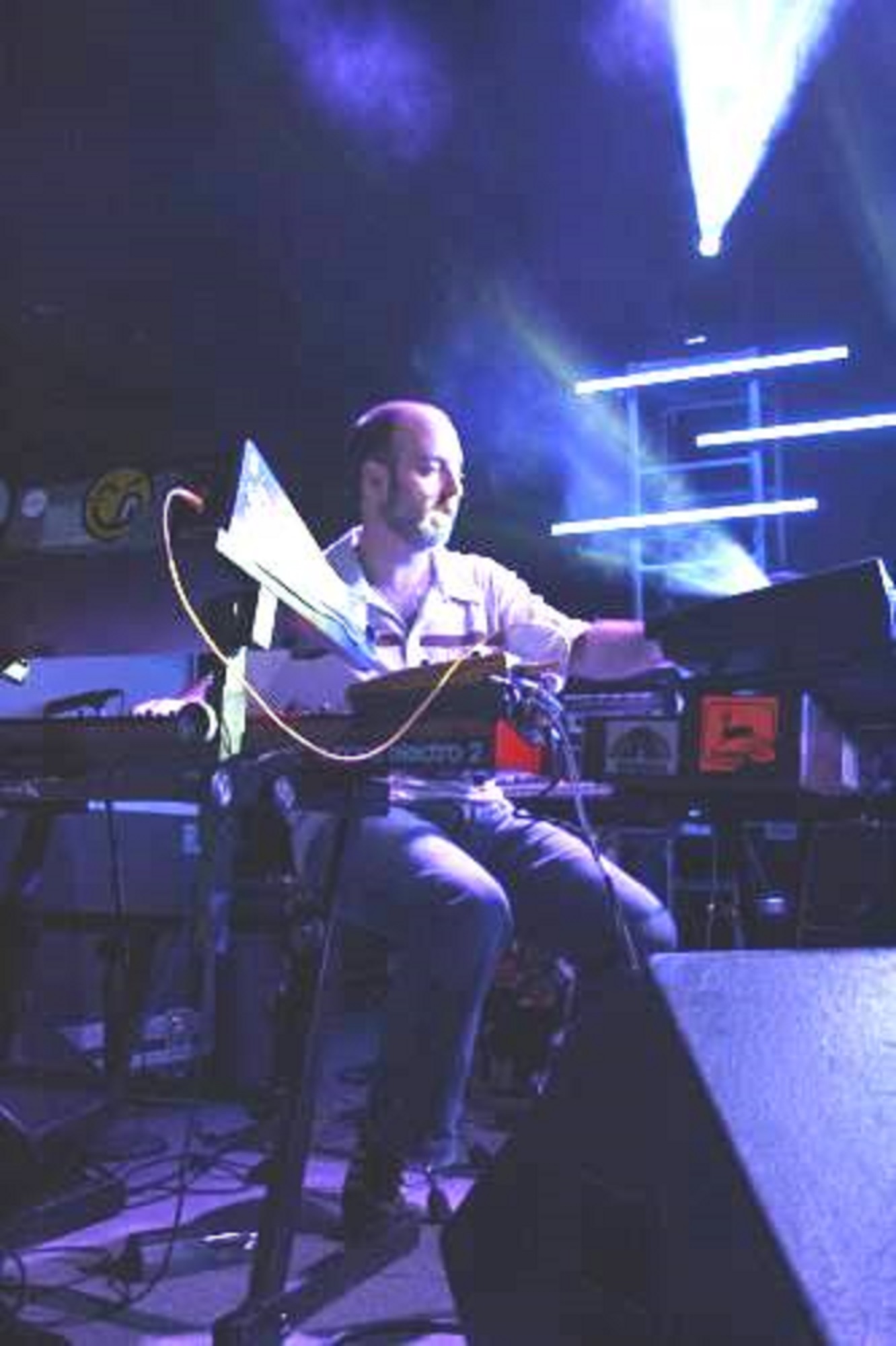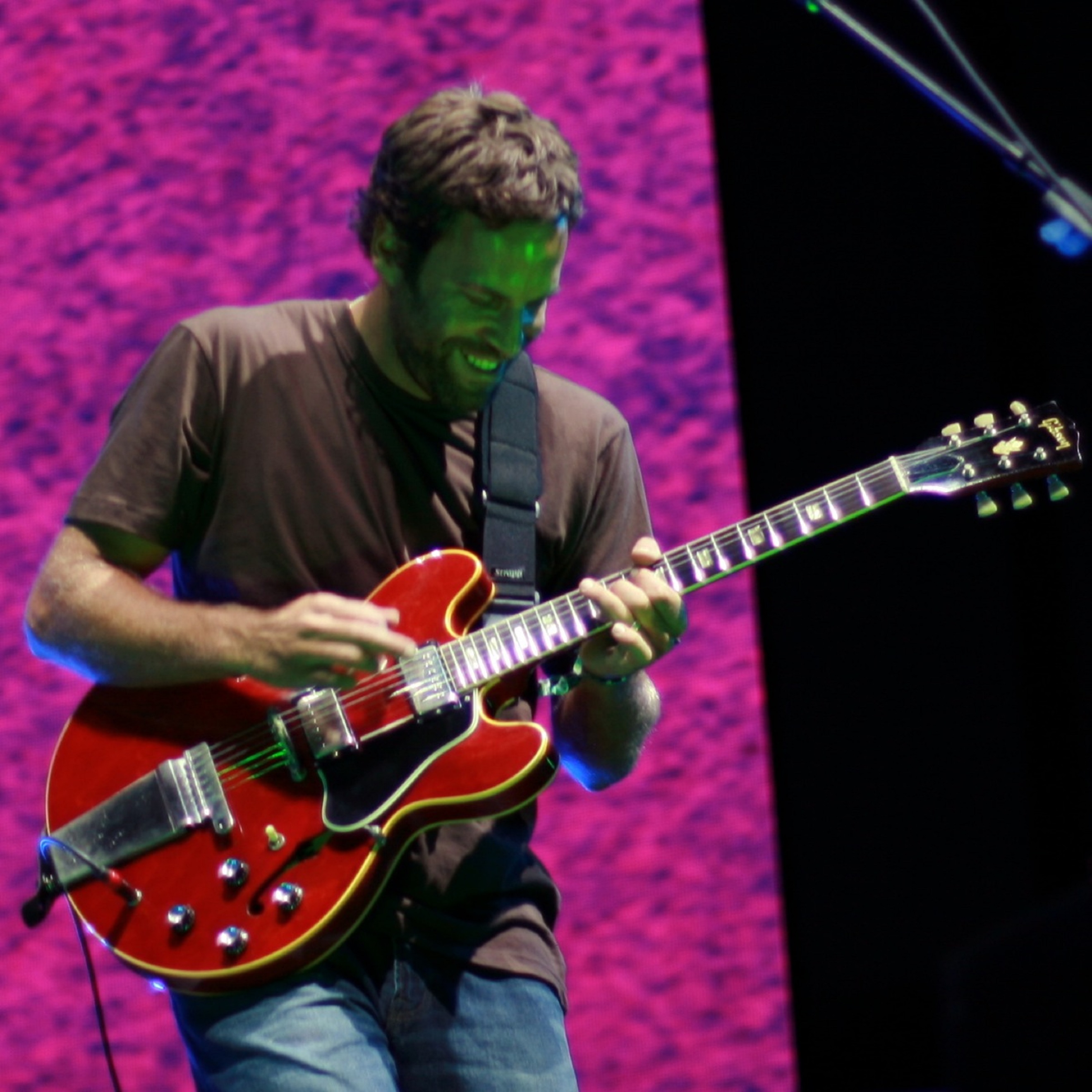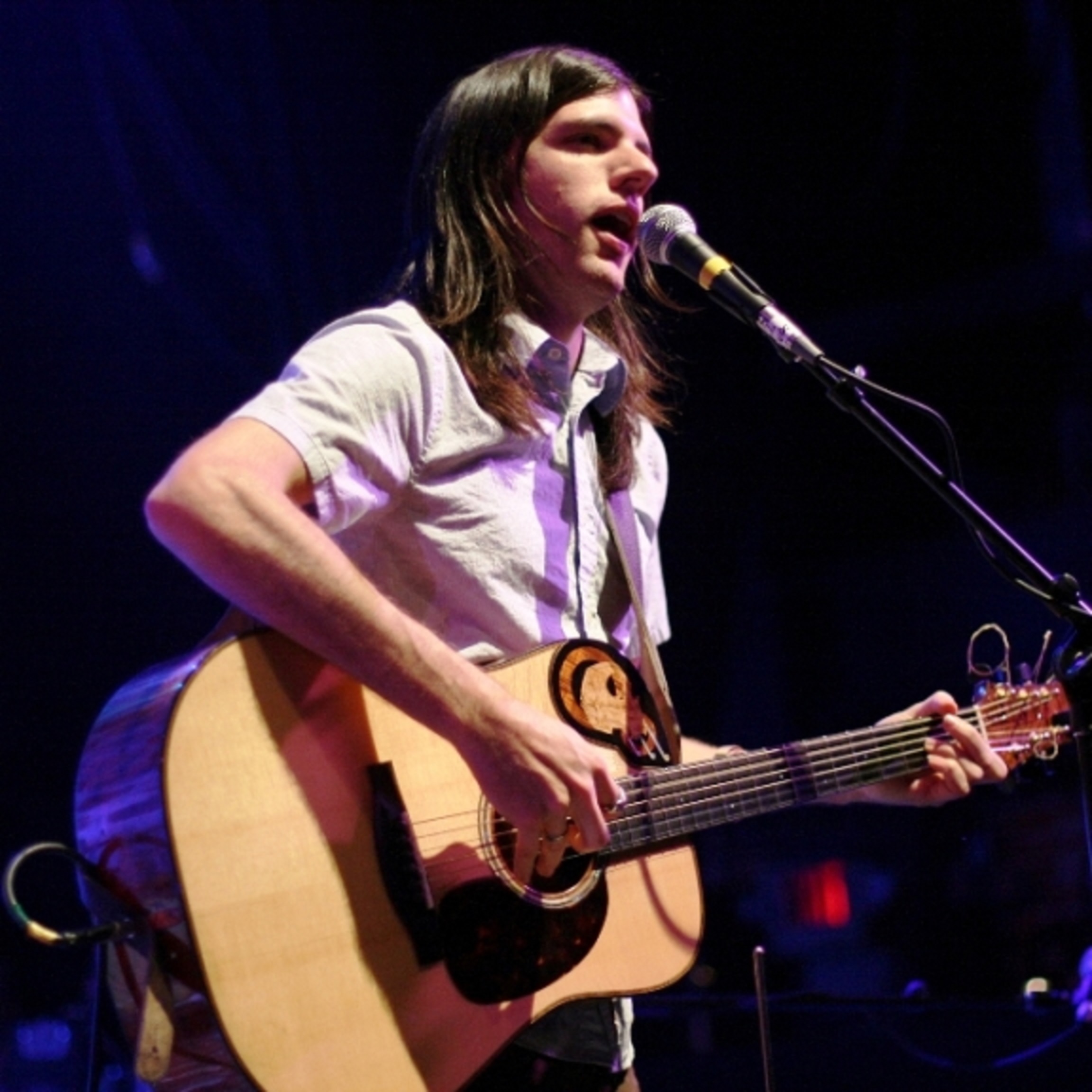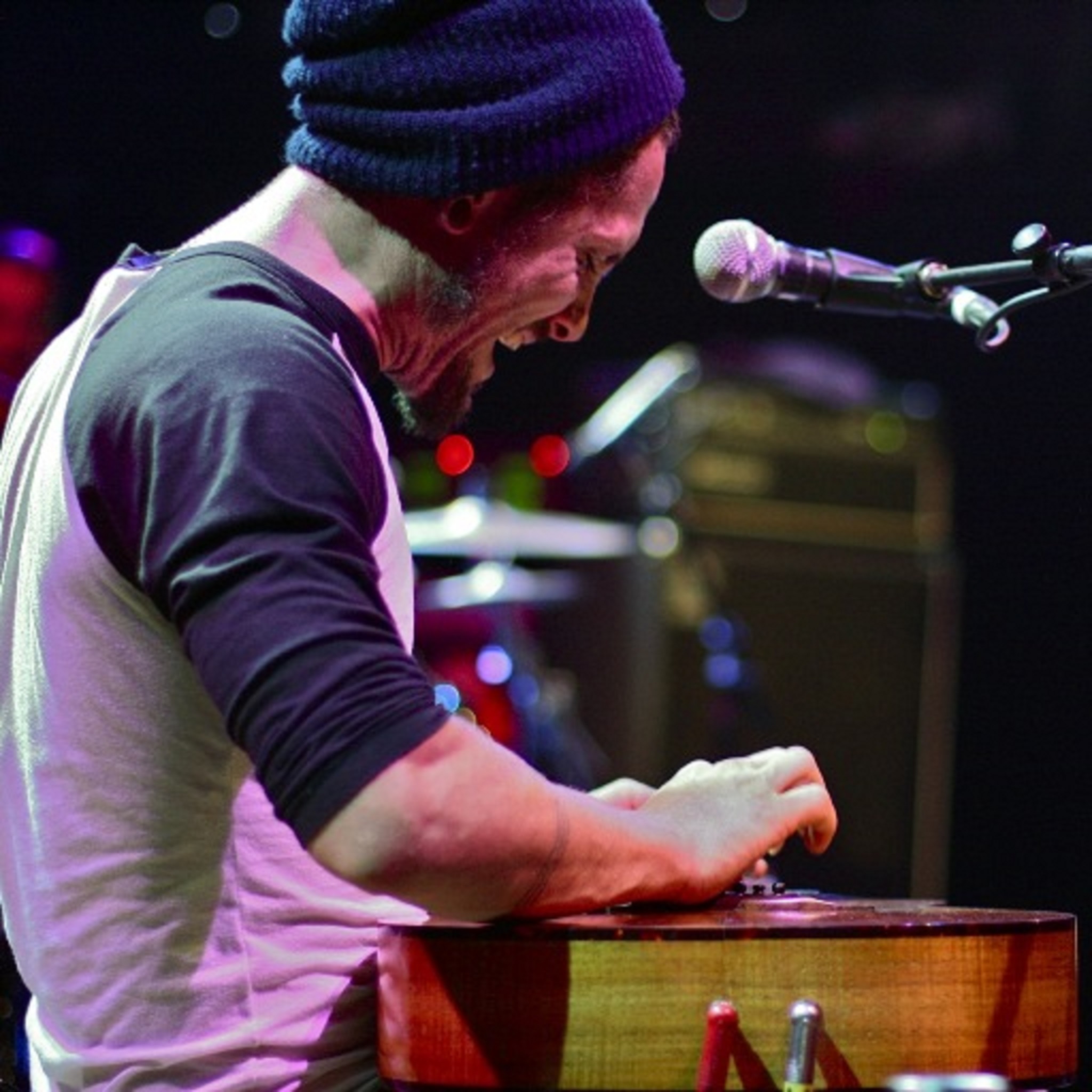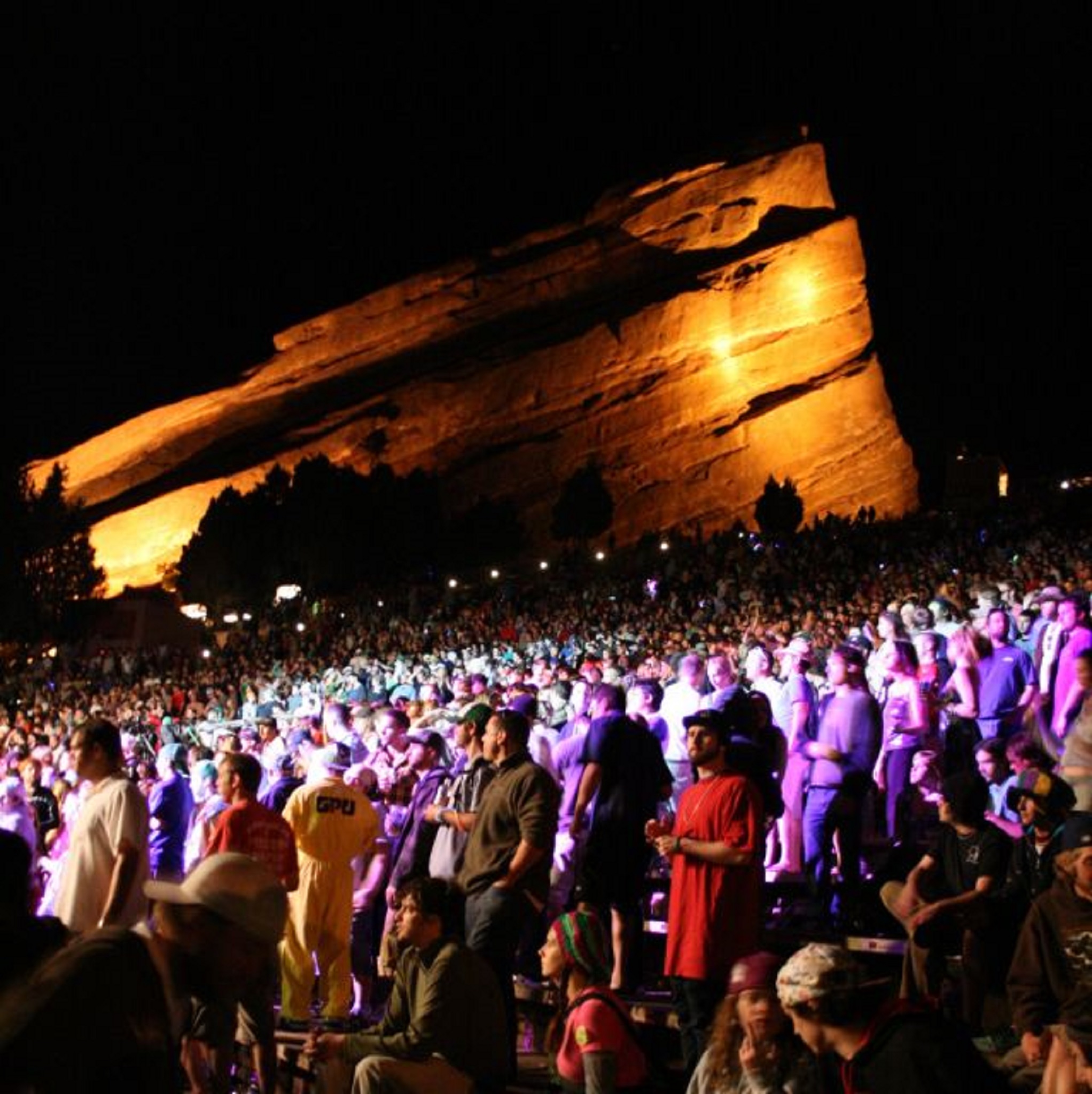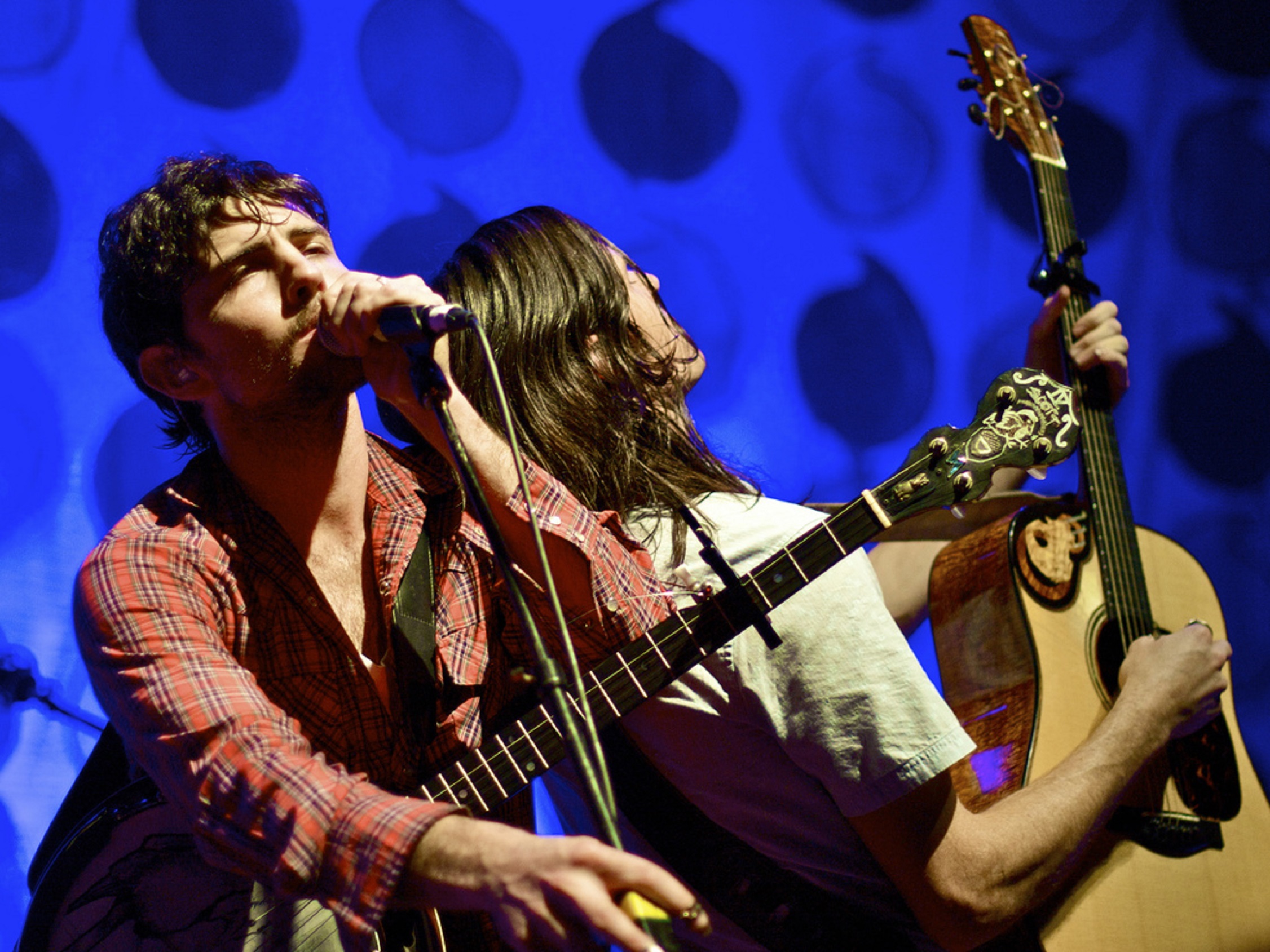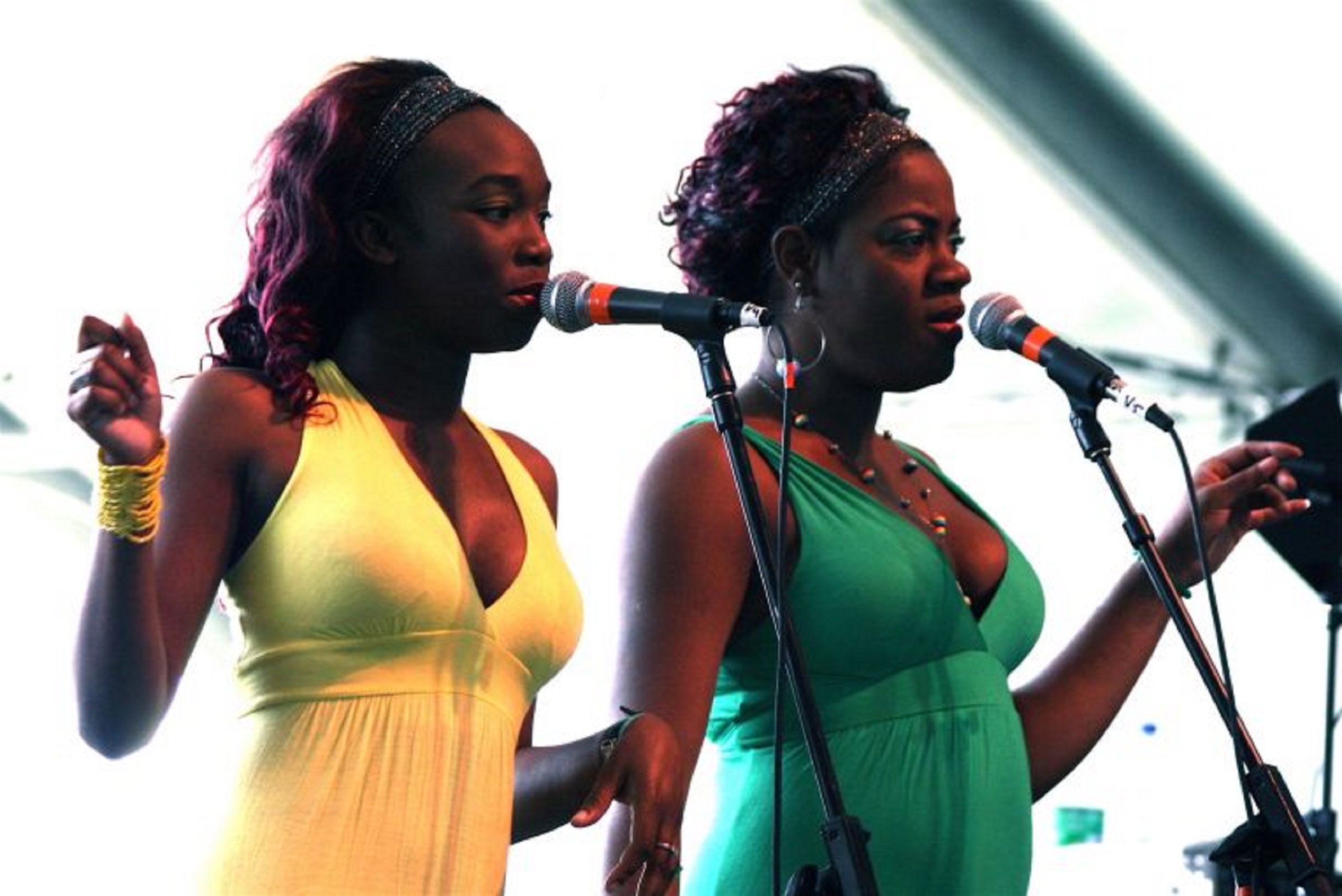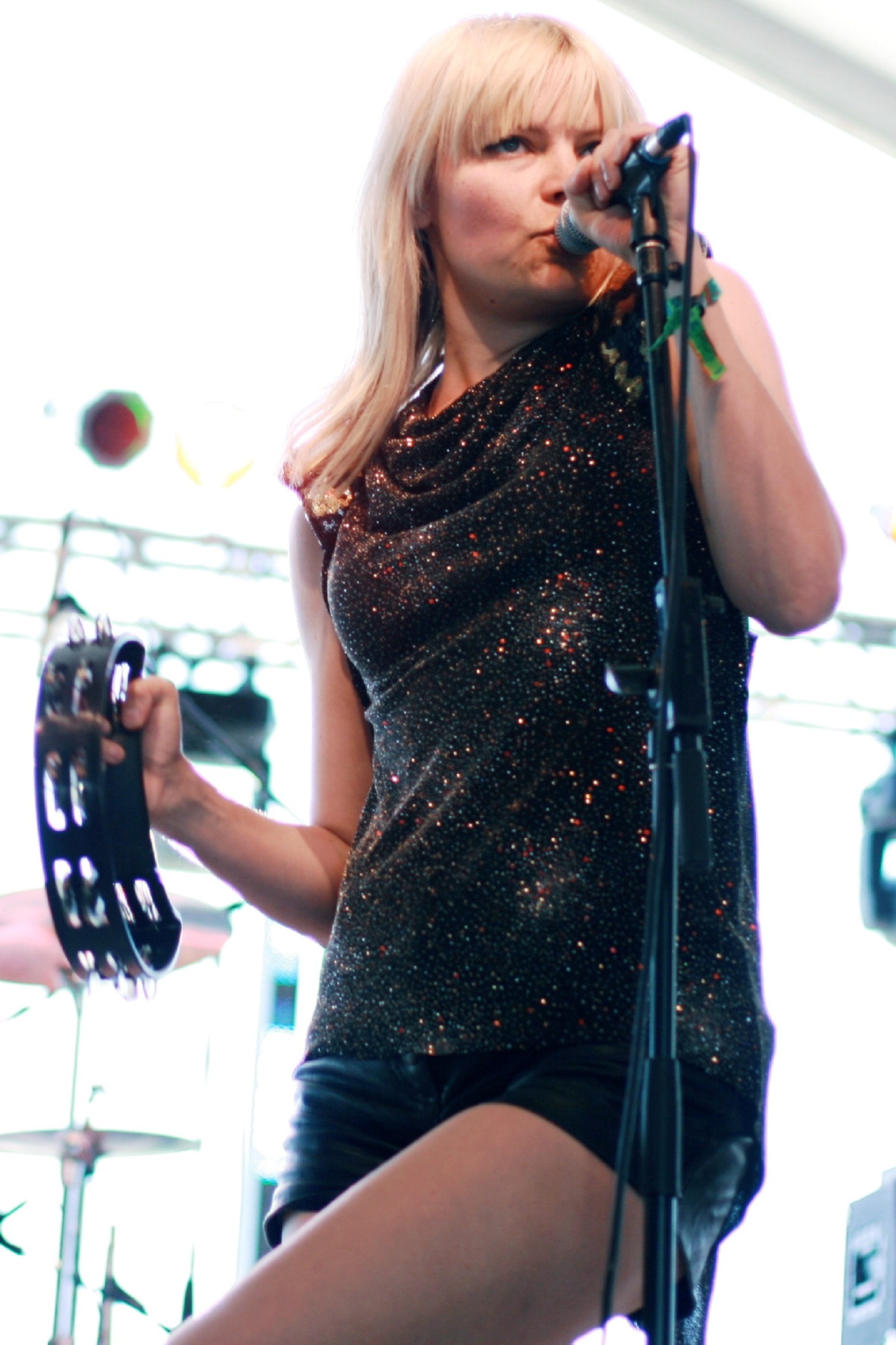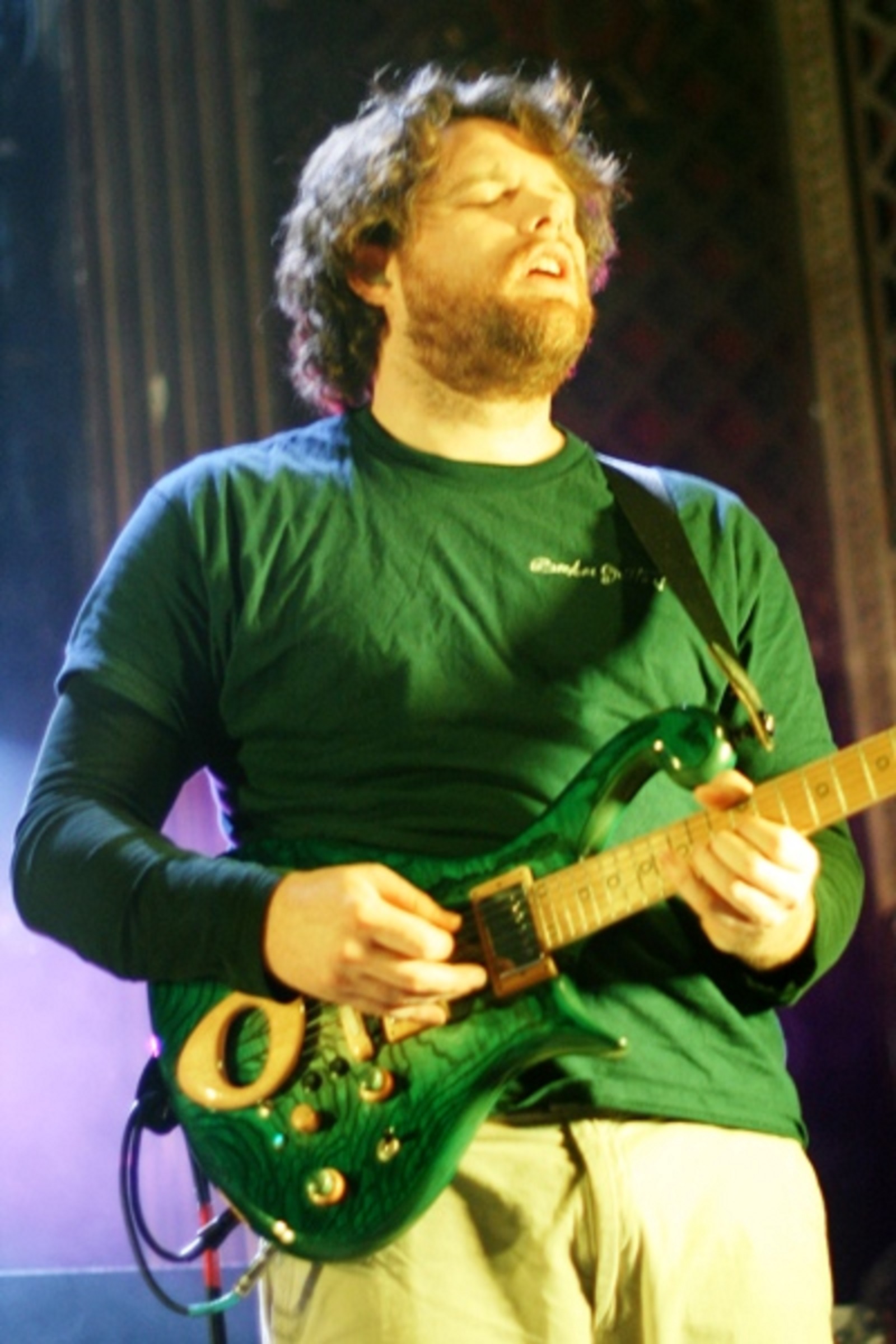As long as festival season is still going strong, summer isn't over. In the final calendar weeks of the hot season, Red Rocks Amphitheater in Morrison, Colorado hosted the Monolith Music Festival, an Indie Rock extravaganza so epic that only a legendary venue like Red Rocks could hold it. Over seventy bands played in a mere two days, spread out over five stages and about ten thousand stairs. The previous week on the Front Range had been depressingly cold and rainy, but on Saturday morning as I stood in the will call line to pick up my creds, I really wished I had remembered to bring some sunscreen.
If you've ever been to Red Rocks, you're probably wondering, as I did, how five stages could fit into the Red Rocks landscape, which is hilly and, imagine, covered with red rocks. The secret is that not all the stages are outside. Two stages were set up inside the visitor center, and a third was a tiny little clamshell of a stage on the ramp just outside the main stage next to the merchandise tent, and hosted only small, acoustic acts. Another stage was located at the top of the amphitheater across the courtyard from the Dell Summer Rocks Dome (shameless, and they're not even paying me!), which provided all manner of extramusical hipster gear, including customizable buttons and teeshirts, make-your-own mixtapes, and even Anime-colored hair dying on site. A few bands came through the dome as well, including DeVotchKa, who would be headlining Saturday night.
I entered the mix to the dulcet punky tones of Dressy Bessy, a female-fronted outfit from just down the road in Denver. Between acts on the main stage, comedian Dave Dugan came out and painfully entertained the crowd. It would be a tough job, I'm sure, trying to tickle a crowd who wasn't really listening. And its tough to watch comedy when no one is laughing, just feels awkward somehow.
It was at this point that I made the first of many journeys up the long, steep stone stairs. The upper deck of the amphitheater already smelled thickly of spilled beer and food, due probably to the fact that there were about seven places in the immediate vicinity to procure sustenance and booze. The Veils, from London, England (and also apparently from Germany and New Zealand somehow) were taking the stage. With a bit of a 90's Brit Pop meets post-punk vibe, catchy riffs, tormented screaming climaxes and high-energy depression, The Veils are both uppers and downers simultaneously, and the drama of this dichotomy comes out strong in their music. Good examples come from the songs Not Yet and Jesus for the Jugular. Although I'd never heard of them before, I realized that I had heard them before, no doubt in the typical way things come to a person through the grapevine – by way of the Internet. Apparently what I'd heard stuck in my head, which isn't always a good thing, but this time I think it was.
The sun was high and the crowd was in good spirits. Those who weren't actively listening to the Veils were milling about and enjoying the view, which might be the greatest at any concert venue anywhere in the world. A few people were camped out in the seats of the main amphitheater, waiting for who knows who, but they were not immune to the music, as it drifted down and across the grounds from the upper deck. Along the railing, from which point the entirety of the amphitheater was visible in striking grandeur, a few people painted, and more than a few people drank and made merry. I decided to head underground to see what there was to see. I was just in time to see Port O'Brien, an acoustic guitar driven, folksy band from California. With a touch of the punk rock spirit, Port O'Brien has a sound I could image being played around a fire while people dance, clap, and stomp their feet. But to say it that way almost sounds like a betrayal of their forceful performance, which was as rockin' as folk music ever could be. Their immense energy filled the small, packed room, but the effect was short-lived. Port O'Brien only played for 30 minutes (seventy bands to accommodate remember), and I made my way across the hall, about 20 feet, to the other indoor stage where the Morning Benders were about to play.
After sound checking themselves for about twenty minutes, and teasing the audience with bits of songs only to stop and converse with the soundboard guy about levels, the Morning Benders finally played some songs. There soft-pop flavor was, well, a little soft for me, and the ubiquitous Britney Spears stickers (all of which looked exactly the same, and which were plastered on everyone's instruments) begged for more eye rolling than it did acknowledgement of the band's eccentricity. "What about Britney Spears already?" I wanted to shout at them moments before I left to find music that didn't aggravate me so much. I wonder what they would have said…
Back on the upper deck, the Muslims were going on. With a cookie cutter Indie sound (in as much as a vague term like "Indie" can characterize a sound) the Muslims weren't really any more impressive than the Morning Benders. At this point I was batting two and two – two good acts and two that were considerably less than good. I tried not to let myself slip into a funk over it, there being quite a few acts left to see, but I did make me think about the fact that some bands are obscure for a good reason. There, I said it.
I walked back down to the main stage to wait for Superdrag. Superdrag has been on the scene for 15 years now, and even had a fairly successful radio hit back in the day. Combining crunchy hooks and smooth harmonies, Superdrag is basic, no-frills rock that is as good today as it was when the band was in their first peak some 12 years ago. Although I must admit that it hadn't registered to me that they'd ever been out of the game, apparently the band is back in it and in good form. Sporting a "Vote 3rd Party" tee-shirt, and belting out his best with impassioned gusto, lead man John Davis talked up the crowd, gushed about the amphitheater, and brought out an old favorite for all the fans who remember the band's heyday ("who sucked out the feeliiiiing?!").
Back up the stairs. I was on my way to see John Vanderslice, who had possibly the most unique last name out of anyone performing at the festival. He also knows how to use his guitar, unlike some of the less interesting acts I'd seen, who stuck fervently to the four-chord form. John Vanderslice, on the other hand, jumped around AND wailed on the guitar, pounding on the side when he wasn't picking on the strings. Big on the vocal harmonies, and with a thoughtfully sullen tone, reminiscent at times of bands like the Shins, John Vanderslice incorporates some dirty elements into an otherwise clean framework. The contrast between the various aspects of his songs – the storytelling quality of the vocals, the danceable beats, the distorted, sometimes psychedelic guitar, and the jazzy keys – is exciting, and innovative.
The Hood Internet was starting to play downstairs, but I decided to, for some crazy reason, walk all the way back down to the main stage. Actually, the reason I decided against the Hood Internet performance was not because they don't interest me, quite the contrary actually. The pair behind Hood Internet makes creative mash-ups of popular songs by popular artists, like R. Kelly and Broken Social Scene, but I felt that I would be missing out on less by going down to watch Cut Copy than by staying to watch a couple guys do their thing behind a computer. The Hood Internet is good at what they do, however, and I'm sure their performance was a good one.
Cut Copy, on the other hand, was just pretty good, even if they weren't hiding behind computers. Their 80's influenced dance-pop approach is not terribly inventive, but is fun enough to entertain, and get people moving. Their twinkling, moody sound is trance-like, and the keys, not the guitar, are the front piece in the band, although Dan Whitford, the lead singer who also played the keys and the occasional guitar, only had his hands on the keys about a third of the time. The rest of the time they were in the air, clapping or gesturing. At one point, everyone was singing in intricate harmony while atmospheric sounds played behind them by way of looping technology. Cut Copy's wall of sound fluctuated from dramatic peaks to hypnotic troughs and back, ebbing and flowing and really getting inside the audience. It was the largest crowd so far, and unlike the band, they didn't have the sun shining directly in their eyes.
"Holy shit, that's a lot of stairs."
Back on the upper deck it was time for Holy Fuck (see we don't have to write it as "Holy F**K" 'cause we're a hip, independent Internet publication) from Toronto, Canada. The experimental electro-rock was on, loud and angry, utilizing a suite of outlandish effects pedals, toys, and noisemakers that could have easily been stolen from the nearest pawnshop only a few hours previous. Driven by heavy beats and bass lines, the duo of Brian Borcherdt and Graham Walsh stand up front over a pair of tables, each covered with an individualized assortment of keyboards, wires and circuitry. No computers or programming was involved, just fast hands and a lot of button pushing and knob twisting. I hope that doesn't make it sound boring, because it was not in the least.
Denver's own The Photo Atlas was about midway through their set down underneath, and I took the opportunity to use the nice, clean, air-conditioned visitor center bathroom, another perk of the indoor stages. Screamy, full of rage, and a little more melodic than a lot of punk rock out there, The Photo Atlas had attracted a packed house, small though the house may have been. The bass player was easily the most difficult rocker I've ever photographed, the guy threw himself around like a fiend, all over the place, and in virtually all directions at once. I would have expected a mosh pit in this sort of crowd, but perhaps we were too cramped. The pace was fast enough for it, though and the adrenaline high enough too.
In the next room, Liam Finn was going on. Paired up with Eliza-Jane Barnes, and coming all the way from New Zealand, Liam plays the role of several musicians, using looping pedals and jumping from instrument to instrument. Often psychedelic and impassioned, Liam Finn howled away at an audience that was starting to spill out into the lobby. At one point, Liam pounded on the drums so hard he broke a skin. Hairy and a little wolfish, Liam Finn plays a mean lead guitar, and puts his whole self into the music. Right above us, Mickey Avalon was drawing a crowd of fawning women, one of whom confided to me none too privately that she wanted nothing more than to "tickle his balls." Self-aggrandizing and only slightly intellectual, Mickey Avalon has got to be about the skinniest rapper I've ever seen, with the possible exception of Snoop. When he brought out the thong wearing go-go dancers, all I could do was shake my head and smile. And stare, of course, who wouldn't? Back underneath, A Place to Bury Strangers was playing dark and evil music in near darkness. Metalesque and grungy, the band's distortion drowned out most of their singing.
The sun was going down, and there was a chill in the air. It was September, after all, nearly the end of the Red Rocks season, and for good reason. Its just not a fun place to be when its cold. The main stage was filling fast in preparation for Vampire Weekend. Here's a band that has come out of obscurity and into the national scene in nearly no time, and you can never be sure where these sorts of rapid ascents will take a band, but for right now, they are riding high on the wave, with a record that's being well-reviewed, a growing fan base, and mainstream radio airtime. One could do worse I suppose, lets just hope it lasts.
Vampire Weekend's upbeat sound was somewhat refreshing after a day filled with hints of emo. Touches of ironically bad attitude are thrown into the happy-go-lucky scheme, and with their movement-inspiring Africanesque beats and punky melodies, Vampire Weekend appeals to the masses on several levels. Playing call and answer with the crowd during "Blake's Got a New Face," and strutting around on tip toes, singer and guitar player Ezra Koenig put off an air of gratefulness (for the large audience, and the opportunity to play Red Rocks), and self-assuredness that wasn't quite cocky enough to be annoying. The majority of the movement on stage came from bass player Chris Baio, who shuffled and Charlestoned around like a 50's kid. The music was good, but the performance was not awe inspiring, and there was not much break with the form set in their first and only album. Still, I stayed until the end of their set and was glad I did.
The chill in the air was getting more pronounced all the time, making me long for the days only recently gone when the sun was up until 9. Del tha Funky Homosapien took the stage on the upper deck, and the bass came thundering down the hill, echoing between the pillars of stone that border the main seating area. I began to walk back to my car to grab a hoodie, and was surprised to see that a few people were leaving already, just before the two biggest acts of the night. When I got to my car, I debated whether or not to bring my raincoat too. It wasn't raining yet, but you know what they say about Colorado: if you don't like the weather, wait ten minutes. I decided to bring the raincoat, turned around and hustled back up to the amphitheater. By the time I got back, the authorities were making Del go offstage a little early due to the high winds which were tearing across the upper deck, threatening to blow Del and his whole setup out into the air.
Silversun Pickups put on an exciting show, and I got the impression that this was the band that everyone had been waiting for. Brian Aubert, growled, howled and ran around the stage like a madman, coming right out to the front edge of the stage to rip it up during his big solo moments. Brian is paired with the quite and demure Nikki Monninger on bass, who is by her own admission "not much for words." Brian tried to get her to speak to the crowd while he tuned between songs, but "not much for words" was all she could come up with. "I guess all the voice lessons were wasted on you, huh?" Brian cracked. Then the tuning was done and the rock was back in full swing. Other than to call it Indie Rock, I'm not quite sure how to describe the Silversun Pickups sound. And calling it Indie Rock isn't very descriptive either, since everyone who played on Saturday was technically in that category, and they all sounded vastly different. Silversun is high octane, a little screamy, and driven by wild and crunchy lead guitar and the defiant spirit. For a band with a relatively brief history, Silversun was able to put on a hell of a show, extrapolating upon the established form to push every song into the more exciting upper regions.
During the last few Silversun songs, the rain started coming down in small but frequent drops. People started to leave in droves, apparently missing the memo that (again, this being Colorado) the weather would change for the better soon. By the time DeVotchKa came on, the rain had stopped, but unfortunately the seats were only about one-third full. Those who remained were pretty hardcore DeVotchKa fans, the ideal fans to have in the audience. As a result of the diminished crowd, the DeVotchKa show took on an air of intimacy, and we all had a great view, and great sound to match. Shawn King (on drums and percussion), Jeanie Schroder (tuba and standup bass), and Tom Hagerman (violin and piano) came out first to set the gypsy-swingin' mood, and were followed after a few minutes by Nick Urata, the voice and face of the band. After a purely instrumental opening, including a Theremin solo, Urata picked up a bottle of red wine, toasted the crowd, and took a log draw straight from the bottle.
Playing songs from their newest album A Mad And Faithful Telling including Basso Profundo, Head Honcho and Clockwise Whitness, and quite a few from their previous works, DeVotchKa performed with enthusiastic elegance and style. It was certainly the most eclectic collection of instruments on stage all day, and the video that was projected on the screen off stage-right was equally so, black and white, classy, grainy, and with interesting illustrations and imagery. After a few songs with just the main foursome, the DeVotchKa Strings and Horns made their appearance. On one side of the stage, eight strings players, including cello and violin, provided the atmosphere and emotional backup to Urata's incredibly passionate voice, while on the other side of the stage, four horn players contributed the Eastern European tones, and the gypsy twang. It was a striking change from their albums, which are somewhat more tranquil, and thoughtful, passionate still, but without the flare that the full band carries in person. This being the first time I'd seen the band, it also fulfilled for me the questions I'd had about the band based on their albums, mainly along the lines of "how they hell did they pull that off?" Now I know.
At about midnight the rain started up again. "A little rain never hurt anyone!" Nick Urata said, once again toasting the crowd, whose enthusiasm for the band made them seem larger than their actual numbers. By now Urata was about halfway or more through his bottle of wine. After a brief break, the band came back out alone, without the strings or horns, although they would all come out for the final song, and to take their bows to the audience. "It couldn't have been a better closing!" a fan behind me exclaimed on the way out. "Too bad there weren't more people though, where did everybody go, anyway?" These were my sentiments exactly. It was the perfectly weird and beautiful ending to a perfectly weird and beautiful day.
And stay tuned to the Grateful Web for complete coverage of Monolith Day 2!





